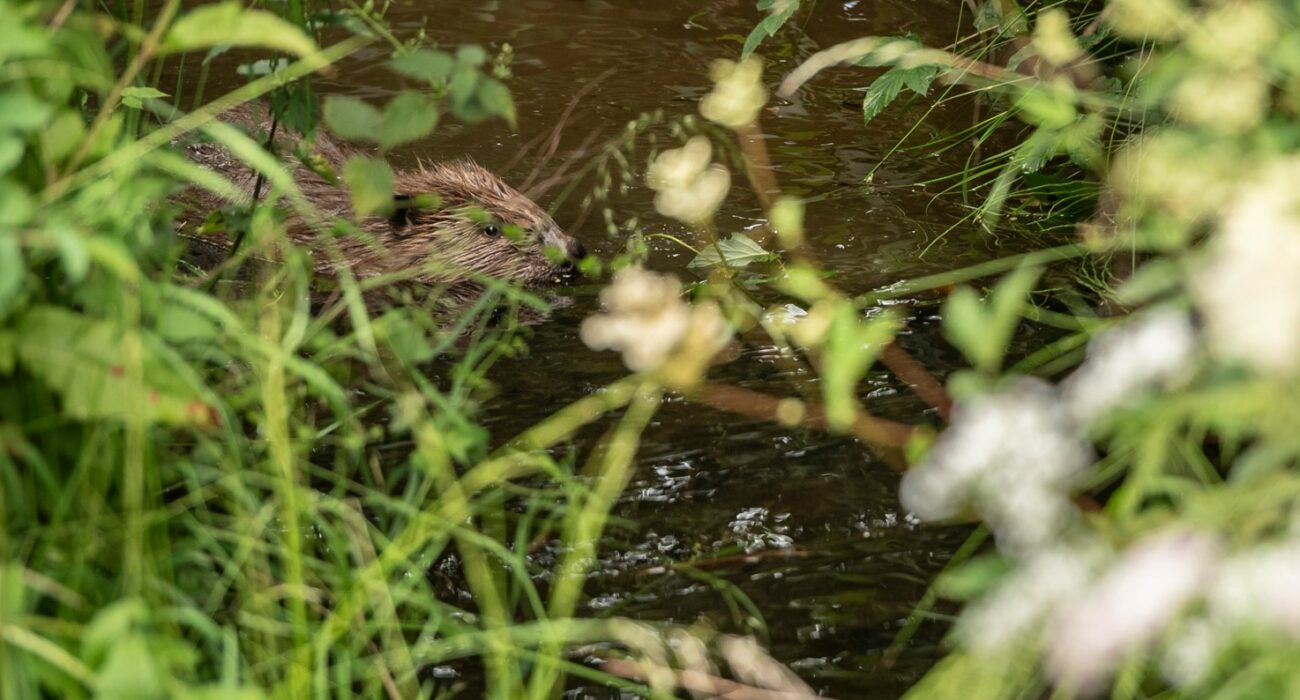
Reece Foundation supports release of Beavers in Northumberland
13th July 2023
A family of four Eurasian beavers have been released on the National Trust’s Wallington Estate in Northumberland to help tackle the effects of climate change and boost nature.
Two adult beavers and two young have been relocated from wild populations in the River Tay catchment in Scotland and will make their home in a 24-hectare fenced enclosure on a tributary of the River Wansbeck.
The release is the first to take place in Northumberland, with the animals becoming one of the few beaver populations in northern England. Beavers were once a mainstay of British rivers but became extinct in the 16th century due to being hunted for their fur, meat and scent glands. In recent years, they have been reintroduced at a growing number of sites in Britain.
Supported by the Reece Foundation the release is a partnership between the National Trust and the Beaver Trust, who carried out the translocation under licence from NatureScot and Natural England.
Anne Reece, chair of Reece Foundation: “We are delighted to have been able to contribute to and facilitate the re-introduction of beavers to Northumberland after an absence of around 400 years. These nature engineers will add new habitats and remould the landscape to the benefit of many species as well as providing delight to visitors. We hope this is the start of many such reintroductions throughout the North East.”
Paul Hewitt, Countryside Manager at the National Trust, said: “Much as they did centuries ago, these instinctive animals will engineer the landscape, creating a dynamic system of dams and ponds that, over time, will become a lush wetland, brimming with life.”
Dr Roisin Campbell-Palmer, who led the release for the Beaver Trust, said: “Relocating any wild animal involves prioritising best practice in animal welfare and their quality of life at the release site. Wallington is an upland stream setting, a recovering, formerly heavily grazed landscape and a great example of exactly where we want these animals to be reintroduced, to demonstrate their ability to restore natural processes and where they are very likely to produce a textbook example of landscape scale beaver benefits: slowing and storing water, boosting biodiversity, and promoting woodland regeneration.”
The beavers form part of a bigger project called Wilder Wallington that is designed to improve prospects for nature across the 5,300-hectare estate and beyond. Other plans include encouraging the migration of pine martens, restoring hedgerows and areas of peatland, planting trees, tackling invasive non-native species, supporting farmers to incorporate nature into their business plans, and alleviating flooding.
Beaver facts
- Beavers are vegetarians – they eat only plants and do not eat fish. They feed on aquatic plants, grasses, herbaceous plants and shrubs during the summer months and woody plants in winter. They will often store food underwater so that they can access it if the water freezes over in winter.
- Beavers build dams to create deep pools of water, which offer shelter from predators and allow them to access and store food. The dams, ponds and channels they create have the added advantage of preventing flooding by slowing, storing and filtering water as it flows downstream.
- The wetland habitats they create attract a diverse variety of wildlife, including bats, dragonflies, kingfishers, owls, moorhens and woodpeckers.
- They can remain underwater for up to 15 minutes.
- They have protective eyelids to see underwater and can close both their nostrils and ears to prevent water from entering.
- Beaver teeth are orange from the iron content in the food they eat.

